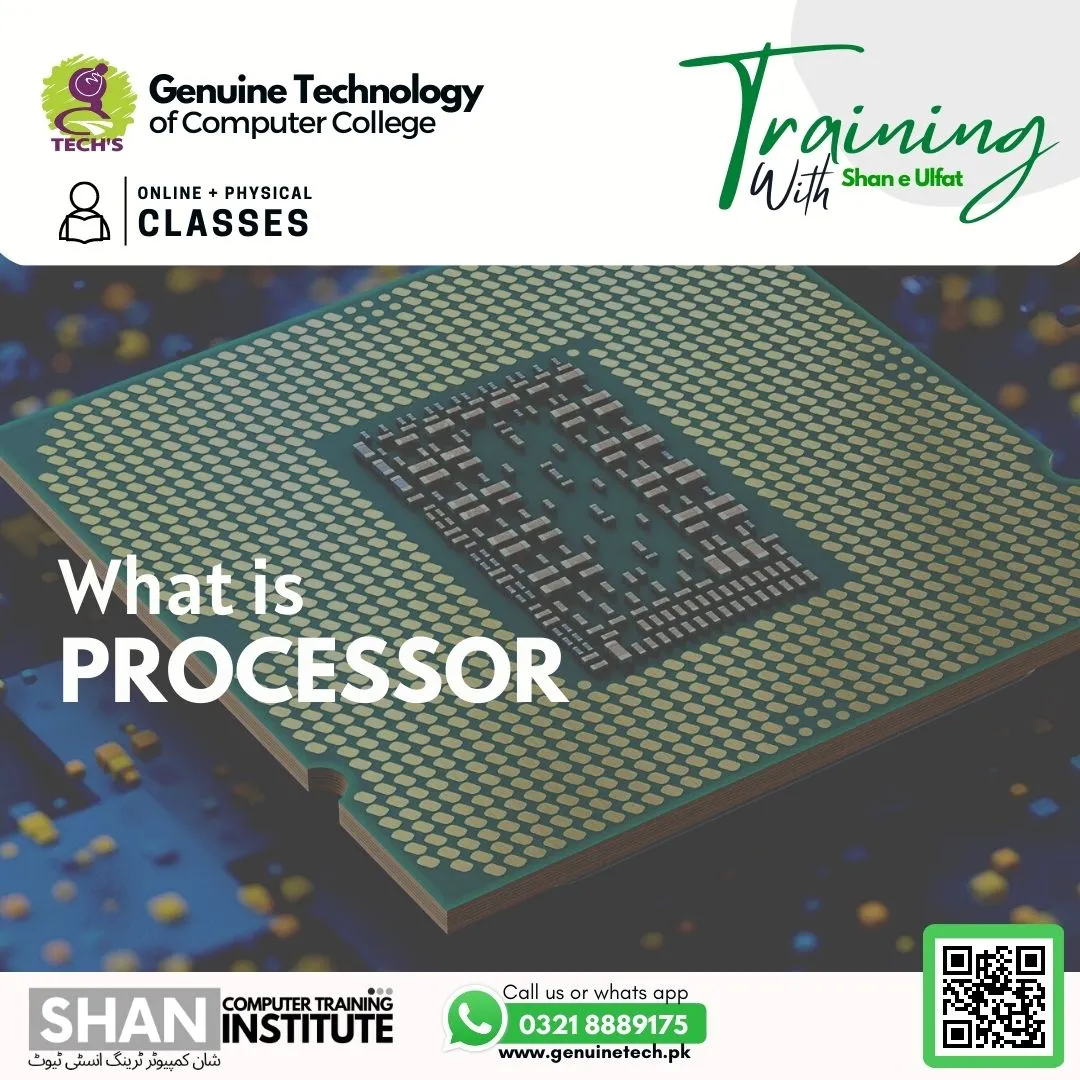The College > Blog > what is processor in Computer?
what is processor in Computer?
What is a processor and its types? - shan trainings
A processor which is also known as a central processing unit (CPU), is the heart of a computer other electronic device and is responsible for executing instructions and other operations. Genuine Tech is offering this Computer IT course in which we provide you training about the best computer hardware course in which you learn by working on real-life processor how to maintain it and how to repair it along with another component like keyboard and many more. In this computer course you can learn differently types of processors and many more;
- Single core: A single core microprocessor has a single core in its die
- Multi core: Multi-core processors may have two or more cores
- Hyper Threading: Allow multiple threads to run on each core
- Components of a processor
- Difference between processor and memory speed
- Main part of a processor
A modern processor may include many components like ALU, a control unit, cache and many more. The Arithmetic logic unit is used or responsible for the Arithmetic operations like addition, subtraction and multiplication and for Logical operations such as AND, OR and NOT. The control unit is responsible for managing the flow of data between different components of computer and many more. You must learn this best computer course and start your career in the IT field or even start your own business.
The Anatomy of a Processor: The Brain Behind Your Machine
To understand the anatomy of a processor you must learn about the key elemets or feature of processor used in computer which may include Arithmetic logic unit through which a user can perform operations like addition, subtraction etc. The next one is control unit which can control the data and instruction with in the processor the other one is registers which can store temporary data and instruction during processing and they are small in size but high in performance the rest of two is chache memory and clock these are the important component of porcessor.
Different Types of Processors Applications and Characteristics
Genuine is the one of the Top Computer College in Lahore which may offer a wide range of computer courses and program in IT fields here in this computer course we provide you training about the different types of processors their applications and characteristics which may include General purpose processor, Micro Processor, Embedded Processor and many more after the completion of this computer course you may become an computer IT expert and start your own business and can join any organization in the job market to start your career.
To comprehend the anatomy of a processor, you must first learn about the essential components or features of a computer processor, such as the arithmetic logic unit, which allows a user to execute operations such as addition, subtraction, and so on. The next one is the control unit, which can control the data and instructions within the processor. The other one is registers, which can store temporary data and instructions during processing and are small in size but high in performance. The final two are cache memory and the clock, which are critical components of the processor.

Functionality of a Processor
When a user interact with their computer like browsing the web, playing games and many more the functionality of a processor is to interprets these actions into a series of instructions which can understand and execute by the computer and one of the best functionality of a processor is to enhance the performance of a computer with their speed and efficiency.
Candidates can easily undertsand all the aspects of a processor in our laptop repairing computer course in Lahore in which you can learn by your own hands-on working which may enhance your expertise and knowledge under the supervision of computer IT experts trainer.
Why the Processor Matters?
Processor is the backbone of the system it may enhance the speed, performance, responsiveness of the system and provide the best user experience whether they are browsing, video gaming etc. You can say the system is incomplete with out the processor it is one of the important and essential thing in any system.
Which processor is fastest?
AMD EPYC is the fatest family of processor which is used in a system it mat boost up the system capabilities like speed, performance and working most of the gaming users can used this processor for getting better user experience while performing actvities in a computer.
Advantages of a Processor
Unveiling the power of processor there are many uses or advantages of processor in a system like;
Blazing Fast Performance: A processor is the powerhouse for a system it may execute many instructions at a time and enhane the speed and capability of a system with the latest technology advance processors in system enable user to perform tasks efficiently with in a few seconds.
Multitasking Mastery: One of the best advantages of a standard processor for user is their capability of performing multitasking like in case of high level games they can easily optimized them and provide the best graphic gaming experience to their users.
Enhanced Productivity: A high performance processor can increase the productivity of professional working for student assignments and company work you can easily perform many tasks at a time with accuracy and efficiently.
Future-Proofing Technology: A powerful processor may provide the future updates for better software and applications performance which may increase it's life span and value.
Conclusion
In modern computing processor play an important role you can learn computer hardware and software courses for understanding the functionality of processor in Genuine Tech compter IT trainings you can enhance your skills and knowledge and become a succesful person in your life upon the completion of computer courses here you can get a course completion certificate which may help you to get an employment in the job market and you become independent by earning money by yourself.
You can visit wikipedia.org to get detail documentation about Processor.







